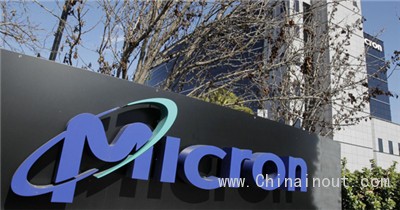美國記憶公司(US Memories Inc)聽起來可能像一家賀卡公司,。實(shí)際上,這是上世紀(jì)80年代末為保持美國在芯片業(yè)中的地位,,擬成立的全行業(yè)合資公司的名字,當(dāng)時(shí)美國芯片業(yè)在日本公司的沖擊下茫然失措,。
美國記憶公司在科技史書籍上是一個(gè)被遺忘的注腳,。當(dāng)一些支持者臨陣退縮的時(shí)候,,集體努力失敗了。實(shí)際上,,最終發(fā)起的反擊采取了更為美國的形式:一家名為美光科技(Micron Technology)的創(chuàng)業(yè)企業(yè),,公司所在地令人意外地位于愛達(dá)荷州博伊西。
現(xiàn)在,,美國在芯片業(yè)面臨亞洲的又一次挑戰(zhàn)——芯片是數(shù)字世界中最基本的部件之一。本月有消息稱,,清華大學(xué)(Tsinghua University)旗下清華紫光(Tsinghua Unigroup)一直在考慮對(duì)美光科技發(fā)起收購要約,,這激起了意料之中的民族主義憤怒,。當(dāng)此類消息被公諸于眾,人們往往可以發(fā)現(xiàn),,對(duì)正式收購要約的反應(yīng)將是什么,。就在這個(gè)時(shí)候,,共和黨參議員約翰麥凱恩(John McCain)公開表示擔(dān)憂:如果美國喪失記憶芯片行業(yè)中的重要地位,,“可能對(duì)國家安全造成什么影響”。清華紫光是一家中國國有公司,,這正是他擔(dān)憂的因素之一,。
在過去25年里,,芯片世界已經(jīng)發(fā)生了很大的變化——但一些事情并未改變,無論是政治還是科技方面,。記憶芯片在科技領(lǐng)域仍處于和以前一樣矛盾的處境:盡管記憶芯片是低利潤率產(chǎn)品,所處市場(chǎng)容易受到惡性周期性波動(dòng)的影響,,但它們要求有先進(jìn)的設(shè)計(jì)和制造技術(shù),,以及巨額的資本投資。它們也是軍事系統(tǒng)中的關(guān)鍵部件,,正因?yàn)榇耍S多分析師相信,,如果清華紫光正式發(fā)出收購要約,,美國極不可能批準(zhǔn)。
自上世紀(jì)80年代以來,,發(fā)生了一個(gè)變化:中國科技業(yè)的全球抱負(fù),。鑒于中國在全球電子制造業(yè)中的巨大份額,在硅領(lǐng)域占據(jù)一席之地已成為一項(xiàng)國家首要任務(wù)——硅是多數(shù)系統(tǒng)中的關(guān)鍵材料,。美光約41%的銷售額來自中國制造商。長期而言,,中國鞏固其全球電子制造中心地位的努力,,取決于能否建立本國的芯片產(chǎn)業(yè),。
迄今為止,,這些努力都遭遇了慘淡的失敗。但清華紫光的試探性收購舉措似乎表明中國策略發(fā)生了改變,,這可能對(duì)中國涉足遠(yuǎn)不止芯片業(yè)的全球科技市場(chǎng)具有重要意義,。
中國企業(yè)在國際上常常遭遇抄襲別國技術(shù)的指責(zé),。曾批評(píng)過中國在知識(shí)產(chǎn)權(quán)方面做法的美國科技分析師馬克褠德森(Mark Anderson)稱,因此,,中國加入自由市場(chǎng)收購大戰(zhàn),,并為獲得美光之類公司的戰(zhàn)略性技術(shù)支付合理的價(jià)錢,,標(biāo)志著一種受歡迎的轉(zhuǎn)向。中國現(xiàn)有芯片產(chǎn)業(yè)的緩慢發(fā)展或許可以解釋清華紫光此舉的膽略,。位于上海的半導(dǎo)體制造商中芯國際(SMIC)為打造全國行業(yè)領(lǐng)軍企業(yè)做出了最明顯的努力,。但中芯國際在臺(tái)灣芯片制造商臺(tái)積電(TSMC)提起的一起引人關(guān)注的知識(shí)產(chǎn)權(quán)訴訟中敗訴,。從美國競(jìng)爭(zhēng)對(duì)手那里獲得技術(shù)許可也未能帶來成功。將近10年前,,中芯國際從IBM獲得了45納米芯片制造技術(shù)許可,,但該技術(shù)在當(dāng)時(shí)已現(xiàn)老態(tài),。
中國獲得更尖端技術(shù)的能力可能正在增強(qiáng)。例如,,IBM在高端服務(wù)器領(lǐng)域已經(jīng)改變了在中國的商業(yè)模式:現(xiàn)在,,它為中國制造商提供技術(shù)許可,,而非試圖銷售基于其Power芯片技術(shù)的機(jī)器,。但是,,全面收購類似美光這樣的國際芯片巨頭,代表著中國芯片行業(yè)更加雄心勃勃的擴(kuò)張,。美光當(dāng)前的市值接近200億美元,即使按照今年席卷芯片行業(yè)的收購潮的標(biāo)準(zhǔn),,這也是一個(gè)難以吞下的大塊頭,。
管理像美光這樣業(yè)務(wù)廣泛的企業(yè),,對(duì)于一家沒有全球業(yè)務(wù)經(jīng)驗(yàn)的企業(yè)來說也將是一個(gè)艱巨的挑戰(zhàn)。美光主要的生產(chǎn)基地位于美國和新加坡,,在日本也有一少部分。商業(yè)顧問,、中國國際投資領(lǐng)域?qū)<抑軜愤_(dá)(Joel Backaler)說,,有效地管理此類國際企業(yè)對(duì)于期待走向海外的中國企業(yè)來說是一個(gè)巨大挑戰(zhàn)。
考慮到可能遭到來自華盛頓的抵制,,清華紫光收購美光看起來希望渺茫。但這可能是中國科技擴(kuò)張即將進(jìn)入新階段的首個(gè)標(biāo)志,。(中國進(jìn)出口網(wǎng))
US Memories Inc may sound like a greeting-card company. In fact, it was the name for a proposed industry-wide joint venture to keep the US in the memory chip business at the end of the 1980s, as the sector reeled from a Japanese corporate onslaught.
US Memories is a forgotten footnote in the technology history books. The attempt at collective action failed when some of the backers got cold feet. Instead, the fight back, when it came, took a far more American form: an entrepreneurial start-up from the unlikely location of Boise, Idaho, called Micron Technology.

Now the US faces another challenge from Asia in the chips that act as one of the most basic components of the digital world. News this month that Tsinghua Unicom, an offshoot of Beijing’s Tsinghua University, has been weighing up an offer for Micron has provoked a predictable ripple of nationalist angst. When kites like this are flown in public, it is often to find out what the reaction to a formal offer would be. On cue, Republican senator John McCain worried publicly about the “potential national security implications” if the US lost a significant position in memory chips. That Tsinghua is a Chinese state-owned company was among the factors weighing on the his mind.
Much has changed in the chip world over the past quarter century — but some things have not, in either politics or technology. Memory chips still occupy the same paradoxical place in the tech universe: though low margin commodity products in a market subject to vicious cyclical swings, they demand advanced design and manufacturing techniques and huge capital investment. They are also key components in military systems — the reason that many analysts believe the US is extremely unlikely to approve a formal takeover offer, should it materialise.
One thing that has changed since the 1980s is the global ambition of China’s tech industry. Given its massive share of global electronics manufacturing, building a position in silicon — the key component in most systems — has become a national priority. Some 41 per cent of Micron’s sales are to Chinese manufacturers. China’s attempt to consolidate its position as the world’s electronics manufacturing hub relies, in the long term, on being able to establish a domestic chip industry.
Up to now, the efforts have failed dismally. But Tsinghua’s tentative takeover approach seems to point to a change in strategy that could have implications for China’s involvement in global tech markets far beyond chips.
Chinese companies have often stood accused internationally of copying technology. So joining the free-market takeover game and paying a fair price to acquire the strategic technology of a company like Micron would mark a welcome turn of events, says Mark Anderson, a US tech analyst who has criticised China’s approach to intellectual property. The slow progress made by China’s existing chip industry may explain the boldness of Tsinghua’s move. Shanghai-based semiconductor maker SMIC has represented the most visible attempt at creating a national champion. But it lost a high-profile intellectual property case brought by Taiwan’s TSMC. Nor has licensing technology from US competitors succeeded. Nearly a decade ago, SMIC was granted a licence to IBM’s 45 nanometre chipmaking technology — already, at the time, a technology that was getting long in the tooth.
China’s ability to access more cutting-edge technology may be growing. IBM, for instance, has changed its business model in China when it comes to high-end servers: rather than trying to sell machines based on its Power chip technology, it is now offering to license the technology to Chinese manufacturers. But a full-blown acquisition of a significant international player like Micron would represent a far more ambitious expansion of China’s chip sector. Micron is currently worth almost $20bn, making it a significant bite even by the standards of the takeover wave that has swept through the chip industry this year.
Running a far-flung operation like Micron also would be a significant challenge for a company without a record in global business. Micron’s main facilities are in the US, Singapore and to a lesser degree Japan. Effective management of international businesses like this is a major challenge for Chinese companies looking to move overseas, says Joel Backaler, a business consultant and expert on Chinese international investment.
Given the likely resistance from Washington, a Tsinghua acquisition of Micron looks a stretch. But it could be the first sign that a new phase of Chinese tech expansionism is about to begin.







